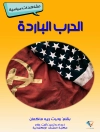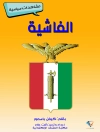This edited collection presents a selection of essays on the history of Irish masculinities. Beginning with representations of masculinity in eighteenth-century drama, economics, and satire, and concluding with work on the politics of masculinity post Good-Friday Agreement in Northern Ireland, the collection advances the importance of masculinities in our understanding of Irish history and historiography. Using a variety of approaches, including literary and legal theory as well as cultural, political and local histories, this collection illuminates the differing forms, roles, and representations of Irish masculinities. Themes include the politicisation of Irishmen in both the Republic of Ireland and in Northern Ireland; muscular manliness in the Irish Diaspora; Orangewomen and political agency; the disruptive possibility of the rural bachelor; and aspirational constructions of boyhood. Several essays explore how masculinity is constructed and performed by women, thus emphasizing the necessity of differentiating masculinity from maleness. These essays demonstrate the value of gender and masculinities for historical research and the transformative potential of these concepts in how we envision Ireland’s past, present, and future.
Table des matières
1. Ireland and Masculinities in History: An Introduction; Rebecca Anne Barr, Sean Brady and Jane Mc Gaughey.- 2. Caught in a Contract: Congreve, Farquhar and Contractarian Masculinities; James Ward.- 3. ‘Whole Swarms of Bastards’: A Modest Proposal, the Discourse of Economic Improvement and Protestant Masculinity in Ireland, 1720-1738; Clíona Ó Gallchoir.- 4. Bog Men: Celtic Landscapes in Mid-Eighteenth-Century Satire; Declan Kavanagh.- 5. Primogeniture, Strict Settlement and the Rituals of Masculinity on an Irish Landed Estate, 1855-90; Kevin Mc Kenna.- 6. Thomas A. Hickey: The ‘Uncrowned King’ and Irish Masculinity on Two Continents; Peter H. Buckingham.- 7. Games for Boys: Masculinity, Boyhood and Play 1922-1939; Mary Hatfield.- 8. Fianna Fáil’s Agrarian Man and the Economics of National Salvation; Aidan Beatty.- 9. Bachelor Trouble, Troubled Bachelors: The Cultural Figure of the Bachelor in Ballybunion and Mullingar; Ed Madden.- 10. Irish Fatherhood in the Twentieth Century; Dara E. Purvis.- 11. ‘No idle sightseers’: The Ulster Women’s Unionist Council and the Masculine World of Politics during the Ulster Crisis, 1912-14; Pamela Mc Kane.- 12. Irish Protestant Masculinities and Orangewomen in Scotland, Canada and England, 1890-1918; D. A. J. Mac Pherson.- 13. Masculinities, Political Transition and Power: A Case Study of Northern Ireland; Fidelma Ashe.- 14. Afterword: Irish Masculinities and Gender History; Sonya O. Rose.
A propos de l’auteur
Rebecca Anne Barr is Lecturer in English Literature at National University of Ireland, Galway. Her research focuses on fictional form, masculinity, and sexuality in the eighteenth-century novel. With Sylvie Kleiman-Lafon and Sophie Vasset, she is co-editor of
Bellies, Bowels and Entrails in the Eighteenth Century (2018).
Sean Brady is Lecturer in Modern British and Irish History at Birkbeck College, University of London, UK. His publications include
Masculinity and Male Homosexuality in Britain, 1861-1913 (Palgrave, 2005 & 2009),
What is Masculinity? (Palgrave, 2011), co-edited with John H. Arnold, and
The Palgrave Handbook of Masculinity and Popular Culture in Europe (Palgrave, 2018), which he co-edited with Christopher Fletcher, Rachel Moss and Lucy Riall. His current research examines masculinities and sexualities in Northern Ireland’s history.
Jane Mc Gaughey is Associate Professor of Diaspora Studies at Concordia University’s School of Irish Studies in Montreal, Canada. She is the author of
Ulster’s Men: Protestant Unionist Masculinities and Militarisation in the North of Ireland, 1912-1923 (2012). Her research focuses on popular representations of Irish sexualities, migration, loyalty, and violence since the early nineteenth century.












